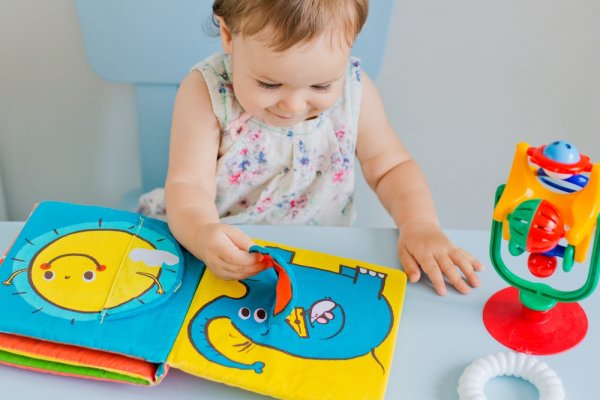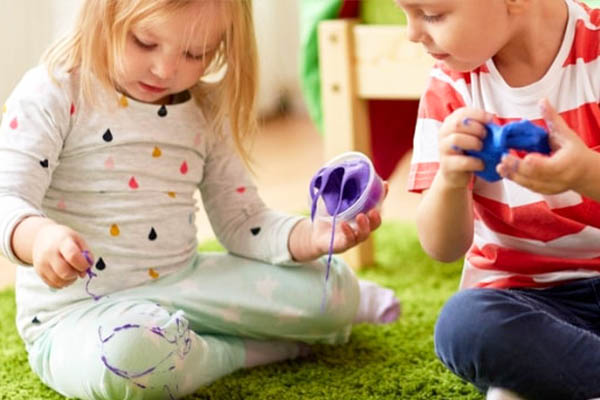Nap time is very important for young children. In fact, naps have a variety of benefits that are essential for children’s growth.
In this issue, we will discuss why children need naps? How long is it necessary (until what age)? I would like to introduce in detail the benefits of naps, the effective length of naps, and even how to wake your child up when he/she doesn’t wake up!
Why kids need nap time! What are the benefits of naps?
For children, nap time is very important, not only for recovering from physical and brain fatigue, but also for improving memory and emotional stability.
First, let’s take a closer look at the positive effects of naps for children.
Effects of naps (1) Recovery of physical strength
During the day, children’s brains are exposed to a variety of stimuli, and once they cool down after a nap, they are able to be active again in the afternoon.
When children are absorbed in play, their bodies become more and more tired without them even realizing it. If they play while their bodies are tired, they are more likely to get injured, and they may even run out of energy and become ill.
When the body is tired or sleepy, even adults may become less focused, irritable, and anxious.
In the case of children, their sense of fun, positivity, and curiosity may decrease, and they are more likely to throw tantrums and become irritable.
A good nap helps the body recover from fatigue and allows the body to be happy, healthy and active in the afternoon.
Effect of naps (2) Immunity is enhanced.
Lack of sleep also decreases the body’s immunity and resistance.
During sleep, the body secretes a hormone called melatonin, which enhances the body’s immunity. This is especially important during the winter months when diseases and influenza are prevalent.
Even a short nap time of one to two hours is enough to improve immunity, so be sure to take naps.
Effect of naps (3) Improved memory and academic performance
Overseas research has shown that sleep deprivation and irregular lifestyles in growing children have a significant impact on their academic, mental, and physical/mental development.
Naptime at a fixed time of day plays a role in eliminating sleep deprivation and regulating the rhythm of life.
Naps help people to organize memory areas of the brain and improve performance in the afternoon. Many companies and other organizations in other countries go out of their way to set aside time for naps.
This is also true for children; proper sleep time improves performance and concentration when learning and reading storybooks, which in turn leads to better academic performance.
Effect of naps (4) Helps to form a rhythm of life
Nap time varies considerably from child to child and family to family, with some children sleeping a lot and others not napping anymore after the age of about 2.
If a child does not sleep at night due to excessive naps or has trouble falling asleep, it may be a good idea to wake him/her up a little earlier or adjust the time of his/her activities in the morning.
While keeping an eye on the child’s condition, create an environment in which the child can adjust his/her daily rhythm and take quality naps.
How long is an effective nap time? Until what time?
Babies as young as six months old need about 12 to 15 hours of sleep, while those around 1 to 2 years of age need about 11 to 14 hours, and those around 3 years of age need about 10 to 13 hours.
However, it can be quite difficult to get this amount of sleep only at night. Therefore, it is necessary to take naps to make up for the necessary hours of sleep.
Naps are important for growth, but napping for too long is not a good idea. If the nap is too long, the child’s eyes may not be able to sleep at night, and he or she may not be able to sleep well the next day.
Depending on the age of the child, the nap time should be approximately one to two hours. Try to wake them up by 3:00 to 4:00 p.m. at the latest.
How to put your child to bed
Avoid watching TV, smart phones, or anything that emits strong light before napping. Looking at strong light just before can wake up the brain and make it difficult to fall asleep or cause sleep to become shallow.
It is also a good idea to adjust the brightness of the room, such as by dimming the brightness slightly at the time of the nap.
What if my child doesn’t want to nap or doesn’t sleep?
However, when children reach a certain age, they may not want to take naps. If your child does not want to go to bed, there is no need to force him or her.
There are days when your child is not very active in the morning and is not tired or sleepy. It is important to allow the child to go at his or her own pace without trying to force nap time.
In such cases, it is important to adjust only the nighttime bedtime so that the rhythm of the child’s life is not disturbed.
How to wake up a child when he/she doesn’t wake up
Some mothers may have trouble getting their children to fall asleep at night when they are about two years old because they are getting stronger.
In many cases, when a child starts to stay up late at night, it is recommended to end naps early and wake the child up early so that the child can go to bed early at night.
How to wake a person when he/she does not wake up (1) Wake him/her naturally with household noises
When you want to wake them up from their nap, if you can wake them up by making household noises, they will wake up naturally.
It is a good idea to wake them up naturally by making household noises little by little, such as cooking, sewing, playing the piano if you are a musician, turning on the TV or music, and so on.
How to wake a person when he/she does not wake up (2) Show you your favorite show as soon as I wake you up.
If the child becomes cranky or groggy and cries when you wake him up, you can put on a favorite program, such as Anpanman, for the child to devour after he wakes up.
This may be a good option for those who are having trouble with their children squirming right after naptime, cutting into their time for household chores.
How to wake a person when he/she does not wake up (3) Let’s take him outside for a cuddle.
Taking your child outside while he or she is sleeping or waking up to let him or her get some fresh air, enjoy the scenery, and soak up the sun’s rays will naturally wake him or her up.
A light cuddle and walk together can help them skip sleep in a healthy way, without them getting groggy.
Children’s nap time is an important time for parents

We have discussed the benefits of nap time for children, but naptime is not only important for children, but also for parents.
For parents raising small children, a child’s nap time is a valuable time of rest. It is very important to get a good rest and rest the body and mind during naptime in order to continue raising your child.
By adjusting nap time according to the child’s age and condition, we hope to create an environment in which children can grow up healthy and energetic, and at the same time, adults can adjust their life rhythm to make their lives easier.








